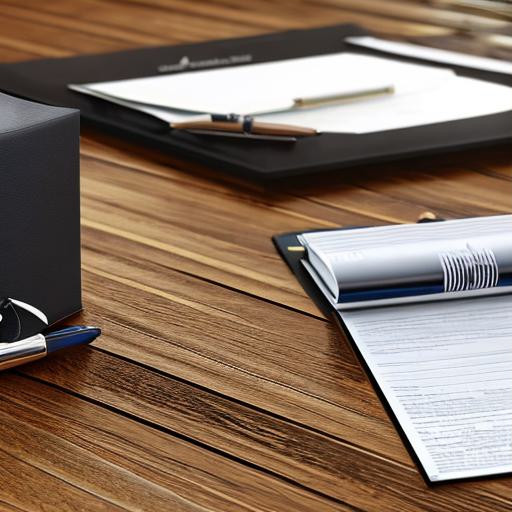

As an executive at a mid-size company, it's essential to prioritize the protection of your business from any unforeseen events that could damage your financial stability. Commercial insurance policies play a crucial role in mitigating such risks, but they can only provide adequate protection when they align with your business needs. This is why it's crucial to regularly review your commercial insurance policies.
Commercial insurance policies are contracts between an insurer and a business that outline the coverage, premiums, and terms of the insurance policy. As a result, the language used in these policies can be complex and legalistic. To ensure that your policies align with your business needs, it's advisable to work with a competent insurance broker or attorney to help review the policies and advise on the necessary changes.
Over time, businesses evolve, and so do their needs. For instance, a company that started as a small business with few employees may have grown into a mid-size company with several locations, which could require additional coverage. Failing to update your commercial insurance policies to reflect these changes could leave you vulnerable to financial loss in the event of a claim.
Additionally, external factors such as changes in industry regulations, legal requirements, and economic conditions can also impact your commercial insurance needs. For example, the COVID-19 pandemic highlighted the importance of business interruption insurance coverage, which many businesses previously overlooked. Reviewing your policies regularly helps ensure that you have adequate coverage for such unforeseen events.
It's also essential to review your policies to ensure that you're not over-insured or under-insured. Over-insurance means that you're paying for coverage that exceeds your needs, resulting in unnecessarily high premiums. On the other hand, under-insurance means that you may not have enough coverage to adequately protect your business, which could leave you exposed to financial loss. A regular review of your commercial insurance policies helps strike a balance between adequate coverage and reasonable premiums.

As an executive at a mid-size company, understanding your commercial insurance policies' coverage types is crucial to ensure that you have adequate protection for your business. While commercial insurance policies can differ depending on your business's industry and size, some common coverage types include:
While these coverage types are not exhaustive, understanding them and how they relate to your business's specific risks is crucial in determining the appropriate insurance policies to protect your business.
Working with an insurance broker is a common practice for businesses looking to purchase commercial insurance policies. However, negotiating better coverage terms can sometimes be a challenge. Here are some tips to help you negotiate better coverage terms with your insurance broker:
Working with your insurance broker to negotiate better coverage terms can help you get the most value from your commercial insurance policies while ensuring that your business has adequate protection.

While insurance policies provide coverage for many risks, they often contain exclusions, which are specific circumstances that the insurance policy does not cover. Understanding these exclusions is critical in determining the appropriate insurance policies for your business. Some common policy exclusions include:
Understanding these common policy exclusions is crucial in determining the appropriate insurance policies to protect your business. Work with your insurance broker to review your policies and ensure that you have adequate coverage for your business's specific risks.
Policy renewals are a regular occurrence in the world of commercial insurance. When renewing your policies, there are several things to look for to ensure that your policies still meet your business's needs:
Policy renewals provide an excellent opportunity to review your commercial insurance policies and ensure that they still meet your business's needs. Be sure to work with your insurance broker to review your policies and make any necessary adjustments.
Bundling your commercial insurance policies with one insurer can provide numerous benefits for your business:
Consider bundling your commercial insurance policies with one insurer to simplify your insurance process, save on costs, and ensure consistent coverage for your business.
Working with an experienced insurance broker can provide numerous benefits for your business. An insurance broker can:
Consider working with an experienced insurance broker to ensure that your business is properly protected against risks and to provide peace of mind for you and your executive team.

As an executive at a mid-sized company, it is important to understand the importance of adequate liability coverage for your business. Liability claims can arise from a variety of sources, including:
Having adequate liability coverage can help protect your business from the financial consequences of these types of claims. Without proper coverage, your business could face significant financial losses and even bankruptcy.
As an executive at a mid-sized company, it is important to understand your business's insurance coverage limits. Coverage limits are the maximum amount that an insurer will pay out for a claim. It is important to ensure that your coverage limits are adequate to cover potential losses.
Many businesses make the mistake of assuming that their coverage limits are sufficient without reviewing their policies regularly. However, changes to your business, such as expansion or the addition of new services, may require higher coverage limits to adequately protect your business.
It is also important to understand the difference between occurrence-based policies and claims-made policies. Occurrence-based policies cover claims that occurred during the policy period, regardless of when the claim is made. Claims-made policies only cover claims that are made during the policy period, regardless of when the incident occurred. Understanding the differences between these types of policies is essential to ensuring that your business is properly protected.

As an executive at a mid-sized company, it is important to review your business's insurance policies regularly to ensure that they still meet your business needs. Insurance policies should be reviewed annually or whenever there are significant changes to your business.
Changes that could impact your insurance needs include:
Regularly reviewing your policies can help ensure that you have adequate coverage to protect your business from these and other risks. It can also help identify areas where your business may be underinsured or over-insured.
Finally, it is important to work with a knowledgeable insurance agent to ensure that you have the right coverage for your business needs. An experienced agent can help identify risks and recommend the appropriate coverage to protect your business.
When selecting an insurance agent, look for someone who has experience working with businesses in your industry. They should be able to provide you with a detailed analysis of your insurance needs and recommend the appropriate coverage to protect your business.
Don't be afraid to ask questions and request a detailed explanation of your policies. A good insurance agent will take the time to explain your coverage and help you understand how it can protect your business.
By regularly reviewing your policies and working with a knowledgeable insurance agent, you can ensure that your business has the coverage it needs to protect against potential risks and financial losses.
In conclusion, reviewing your commercial insurance policies regularly is essential for any mid-sized business. Changes in your business, regulations, and industry can impact your insurance needs, making it critical to ensure that you have adequate coverage. By working with a knowledgeable insurance agent and regularly reviewing your policies, you can identify potential gaps in coverage and ensure that your business is protected against potential risks and financial losses. Protect your business and give yourself peace of mind by making policy review a regular part of your risk management strategy.
Last Update: March 2023